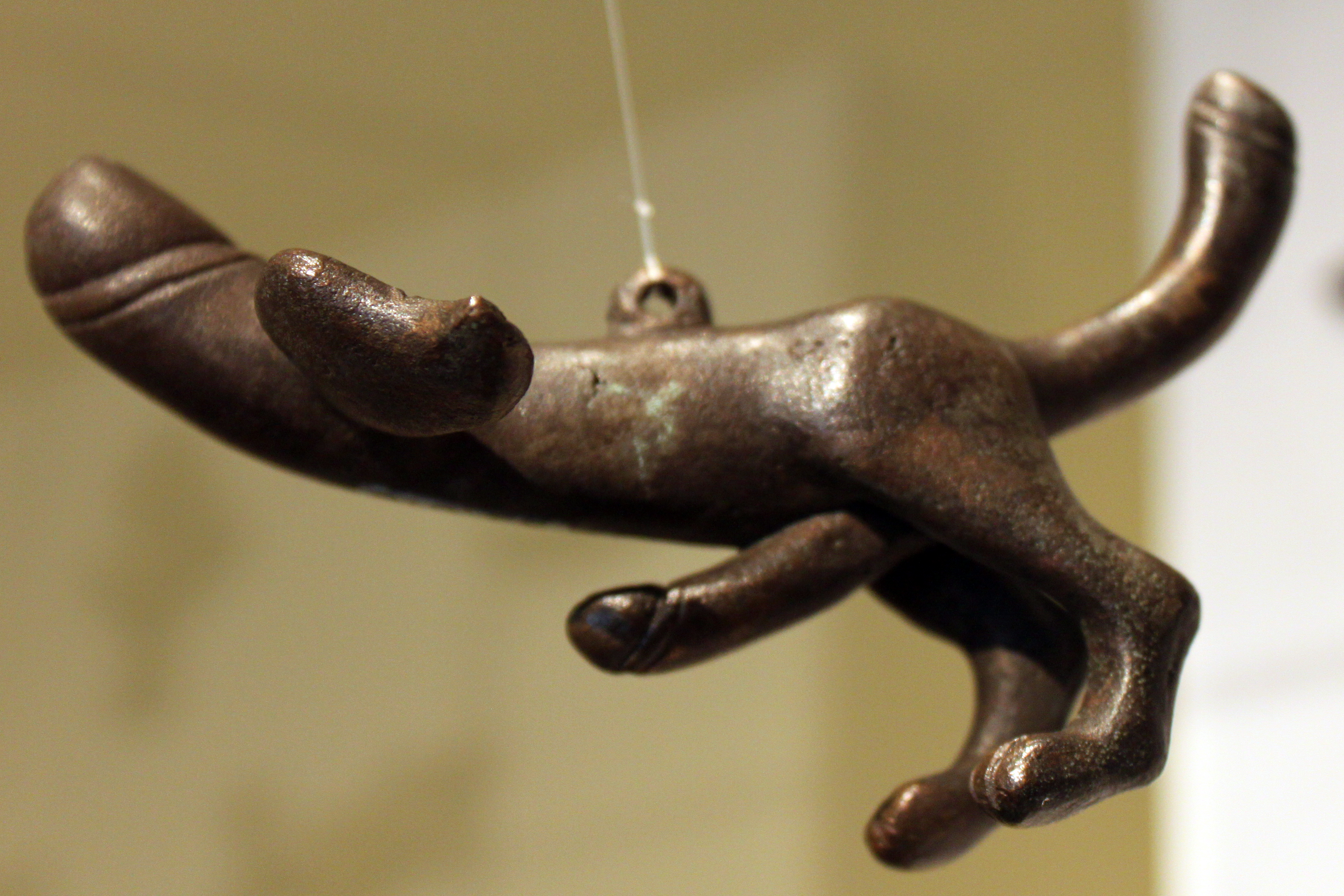A wind chime in the shape of a winged penis has been discovered among the ruins of the ancient Roman city of Viminacium in modern-day Serbia. Hung (pun intended) from the porch of a building, the whimsical wang was intended to bring luck and ward off evil energies.
Still popular today, the human penis has been in vogue throughout history, though never more so than during Roman times. Seen as a symbol of masculine power and protection, phalluses were often depicted on frescoes, while soldiers regularly wore amulets in the shape of a penis when going into battle.
Located close to the northern border of the Roman empire, Viminacium was first occupied during the first century CE before being destroyed by Attila the Hun about 400 years later. According to Live Science, the phallic wind chime – also known as a tintinnabulum – is the second to have been discovered by archaeologists at the site.
Speaking to Serbian website Sve o Arheologiji, researcher Ilija Danković from the Archaeological Institute explained that “during the excavation of one of the main city streets, the gate of one of the buildings was discovered. It was established that the building was destroyed in a fire, during which the porch collapsed and fell to the ground, and in the garage layer an object known in scientific circles as a tintinnabulum was discovered.”
Cast from bronze, the item consists of four bells on a chain, at the end of which is a magical being known as a fascinum, which is essentially a flying penis with legs. In most fascinum depictions, the penis also has its own penis, and for a tail, it has a penis.

An example of a Roman fascinum.
For now, the tintinnabulum remains coated in mud as it awaits restoration, which means its exact arrangement, structure, and form are yet to be determined.
Similar magical members were often used as charms to protect Roman babies during a period in history when infant mortality was high. The wind chime found at Viminacium was probably placed above a doorway in order to scare off malevolent spirits with both the noise it made and its appearance.
“It was for this reason that the owner of the building in Viminacium hung the tintinnabulum in front of his gate,” explained Danković. “He believed that this object had powerful magical properties that could help him.”
[H/T: Sve o Arheologiji]
Source Link: "Magical" Penis With Wings Found At Roman Site In Serbia